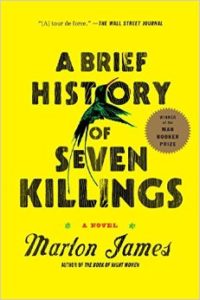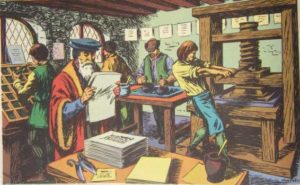Triumph of the Book!
The recent press accounts have been heartening to devotees of the book — which had been disdained as the “printed book” or “hard-copy book,” or even the “dead tree book.” It turns out that lots of readers prefer reading old-fashioned books to new-fangled e-readers.
That’s what college students say. They want to read a “real” book, not more content on a screen.
That’s what sales numbers say, with e-book sales flattening and even dropping off while printed books are doing all right.
Several studies have found that comprehension and retention of information are superior when reading books as opposed to e-books.
And now I can offer my own anecdotal data. On a relaxed holiday vacation with five other family members, four of whom are in their 30s, a range of interesting books appeared in many different hands, but nary an e-book appeared.
My own theory is that the reading public is already spending way too much time looking at screens for work or school. A book is quiet. It won’t beep at you, or “poke” you for a response, or drag your attention anywhere except the next sentence. Screens are for scanning; books are for reading.
This trend encourages me. It’s not that e-readers are dead, dying, or a terrible idea. Some people like them a lot. I’ve read books on a screen and it’s been okay. Nothing wrong with it. It’s just that I like reading actual books better. And it turns out there are a lot who agree with that conclusion.
Left on their own, sometimes humans figure things out, the Trump presidential candidacy to the contrary notwithstanding.
Even better news from the holiday trip: I read two great books.
 A Brief History of Seven Killings by Marlon Jones is a terrific novel, which you might expect of the winner of the prestigious Man Booker Prize. The novel is a demanding read, with a forest of Jamaican patois that requires considerable attention to figure out. And it’s long. But it explores Caribbean society in a powerful way, laying it bare. It also pulls no punches about American responsibility for Jamaican corruption and violence.
A Brief History of Seven Killings by Marlon Jones is a terrific novel, which you might expect of the winner of the prestigious Man Booker Prize. The novel is a demanding read, with a forest of Jamaican patois that requires considerable attention to figure out. And it’s long. But it explores Caribbean society in a powerful way, laying it bare. It also pulls no punches about American responsibility for Jamaican corruption and violence.
A much different book from a different era, The House of the Prophet by Louis Auchincloss, is equally outstanding. Auchincloss, a longtime partner at the stodgy New York law firm Sullivan & Cromwell, wrote about New York’s traditional upper class in the late nineteenth and twentieth centuries. He’s insightful and witty, and this book — supposedly based on the career of powerhouse columnist Walter Lippmann — is both engaging and a discerning examination of American society from World War I through the Vietnam War. Auchincloss had particular knowledge whereof he wrote, since he was literary executor for Lippmann. Check it out.

